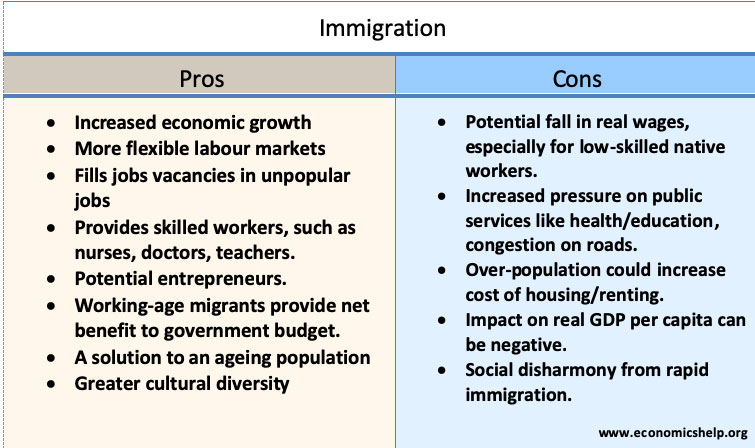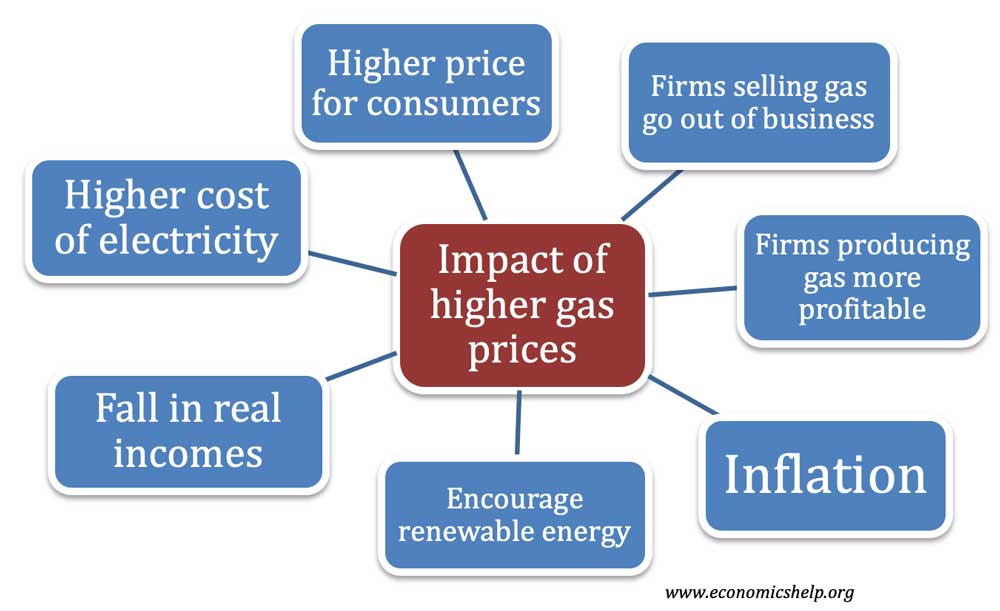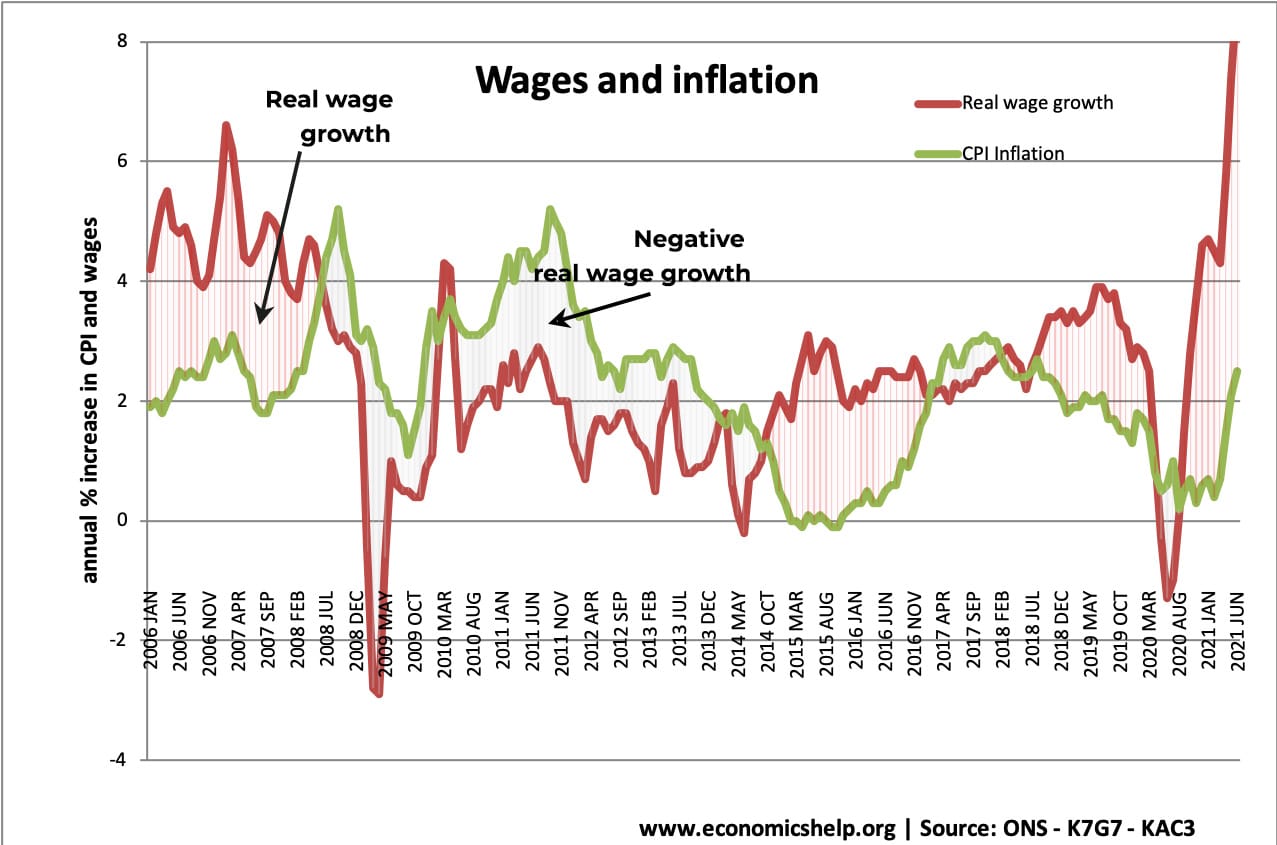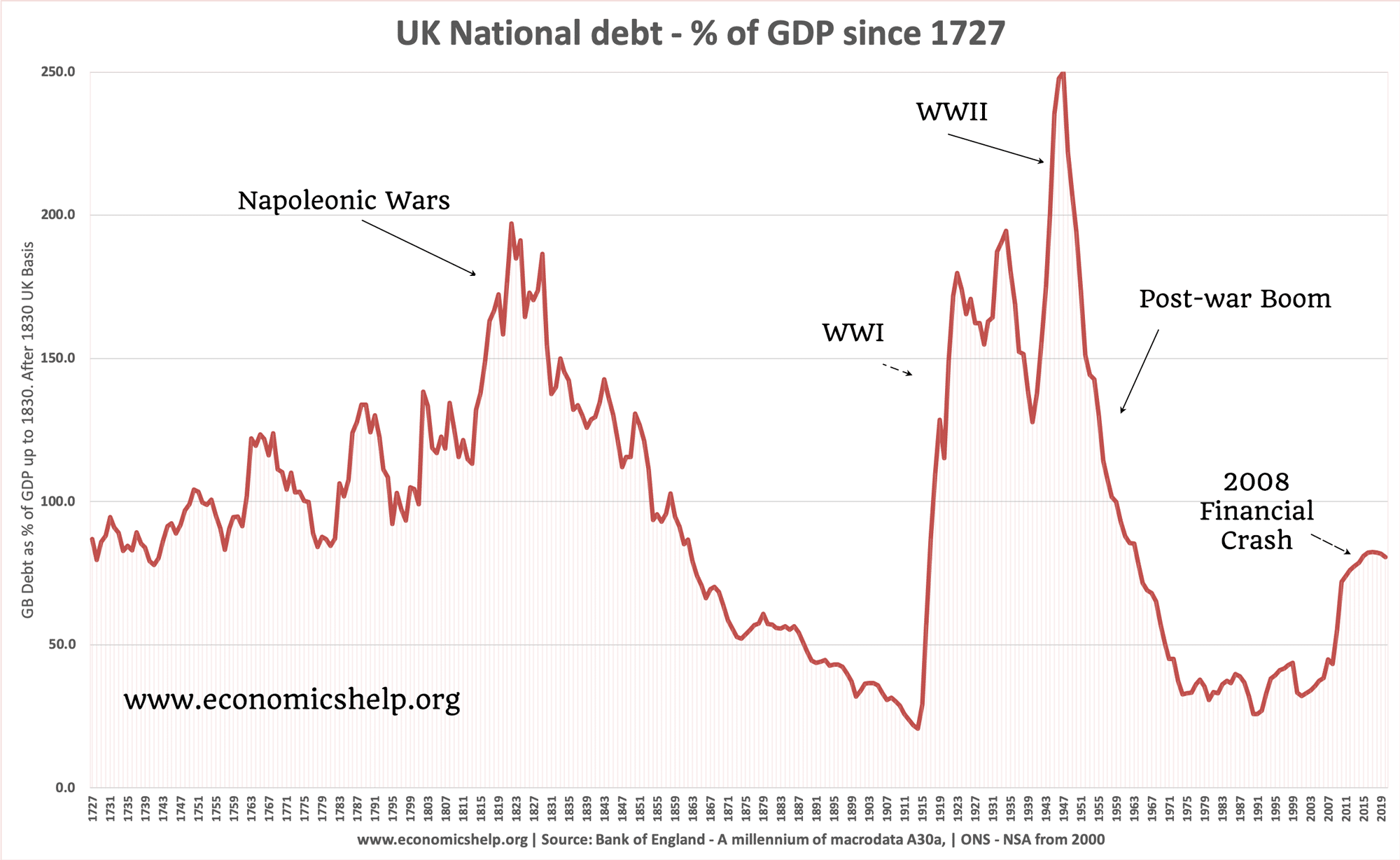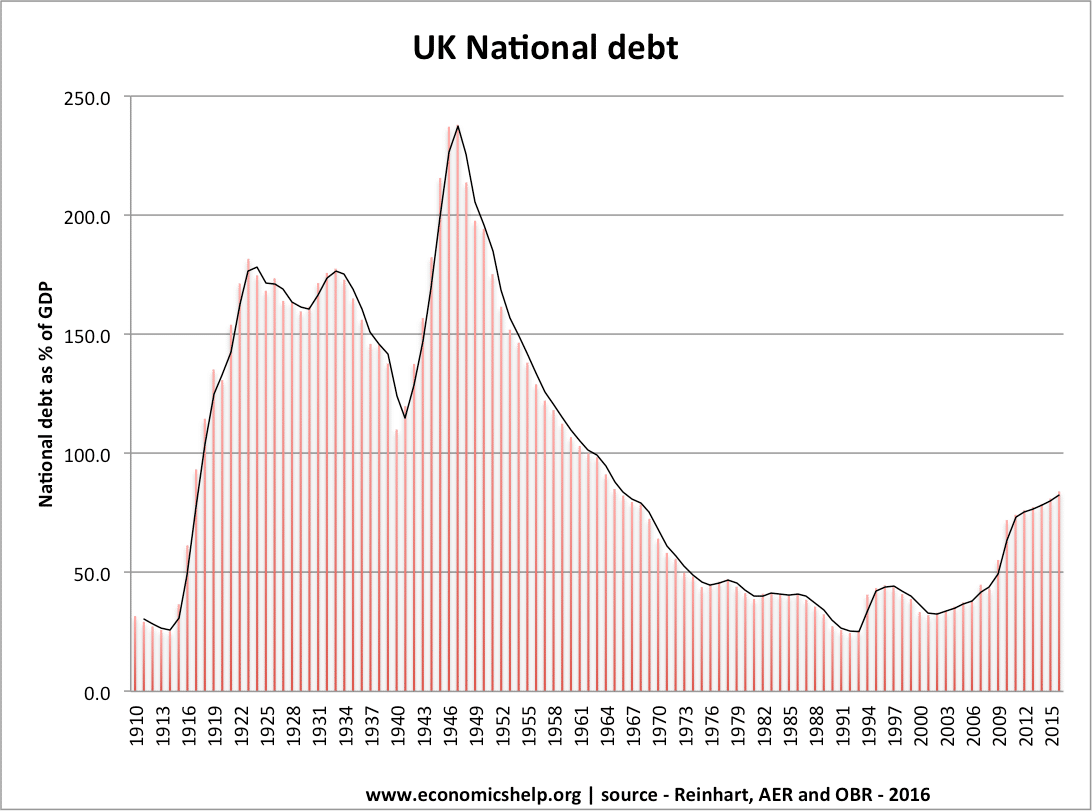Pros and cons of Immigration
Immigration can give substantial economic benefits – a more flexible labour market, greater skills base, increased demand and a greater diversity of innovation. However, immigration is also controversial. It is argued immigration can cause issues of overcrowding, congestion, and extra pressure on public services. There is also a debate about whether immigration of unskilled workers …

